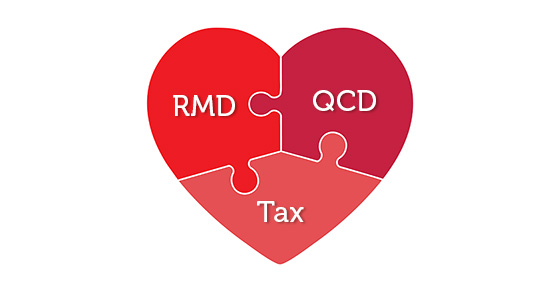Businesses should stay grounded when using cloud computing
- ByPolk & Associates
- Aug, 15, 2024
- All News & Information
- Comments Off on Businesses should stay grounded when using cloud computing
For a couple decades now, companies have been urged to “get on the cloud” to avail themselves of data storage and software via the internet. But one recent report found that many businesses were overpaying for cloud services because they were failing to claim discounts offered by their providers. The truth is, cloud computing arrangements and invoices tend to be complicated. Be sure you and your leadership team know what you’re getting into with a cloud contract, familiarize yourselves with the content of invoices, identify and claim discounts you’re entitled to, and closely monitor cloud usage. Our firm can help you assess the costs and potential savings of cloud computing.
Vroom vroom: What businesses should know about sales velocity
- ByPolk & Associates
- Jul, 17, 2024
- All News & Information
- Comments Off on Vroom vroom: What businesses should know about sales velocity
Owning and running a company tends to test one’s patience. You wait for strategies to play out. You wait for materials, supplies or equipment to arrive. You wait for key positions to be filled. But, when it comes to sales, how patient should you be? A widely used metric called “sales velocity” can help you decide. […]
If your business has co-owners, you probably need a buy-sell agreement
- ByPolk & Associates
- Jul, 17, 2024
- All News & Information
- Comments Off on If your business has co-owners, you probably need a buy-sell agreement
Are you buying a business that will have one or more co-owners? Or do you already own one fitting that description? If so, consider installing a buy-sell agreement. A well-drafted agreement can: 1) transform your business ownership interest into a more liquid asset, 2) prevent unwanted ownership changes, and 3) avoid estate tax hassles with the IRS. The death of a co-owner is an event that triggers a buy-sell agreement. You can use life insurance policies to form the financial backbone of your agreement. In the simplest case of a cross-purchase agreement between two co-owners, each co-owner purchases a life insurance policy on the other. Contact us about setting up a buy-sell agreement.
3 Areas of focus for companies looking to control costs
- ByPolk & Associates
- Jul, 17, 2024
- All News & Information
- Comments Off on 3 Areas of focus for companies looking to control costs
Controlling costs is a fundamental task for every business. But where and how to address this challenge can change over time based on various factors. One recent survey revealed three top categories for cost-cutting initiatives: 1) Supply chain; identify your top vendors and see whether you can consolidate spending with them to put yourself in a stronger position to negotiate volume discounts. 2) Labor; be sure you know precisely how much you’re truly spending. A metric called labor burden rate can help. Outsourcing and tech upgrades may help, too. 3) Marketing and sales; choosing and monitoring the right metrics is essential for controlling these costs as well. Contact us for help.
Planning your estate? Don’t overlook income taxes
- ByPolk & Associates
- Jul, 17, 2024
- All News & Information
- Comments Off on Planning your estate? Don’t overlook income taxes
The high federal estate tax exemption ($13.61 million in 2024) means that many people aren’t concerned with estate tax. But you should still consider saving income tax for your heirs. For example, be careful making lifetime transfers of appreciated assets. It’s true that the assets and future appreciation generated by them are removed from your estate. But a gift carries a potential income tax cost because the recipient receives your basis upon transfer. He or she could face capital gains tax on the future sale of the gifted property. If the appreciated property is held until your death, under current law, the heir will get a “step-up” in basis that will reduce or wipe out capital gains tax.
Be aware of the tax consequences of selling business property
- ByPolk & Associates
- Jul, 17, 2024
- All News & Information
- Comments Off on Be aware of the tax consequences of selling business property
If you’re selling property used in your trade or business, you should understand the tax implications. Many rules may apply. Let’s assume you want to sell land or depreciable property used in your business and held for more than a year. Gains and losses from sales of business property are netted against each other. The net gain or loss qualifies for tax treatment as follows: 1) If the netting of gains and losses results in a net gain, long-term capital gain treatment results, subject to “recapture” rules. Long-term capital gain is generally more favorable than ordinary income. 2) If the netting of gains and losses results in a net loss, the loss is fully deductible against ordinary income.
Could a 412(e)(3) retirement plan suit your business?
- ByPolk & Associates
- Jul, 17, 2024
- All News & Information
- Comments Off on Could a 412(e)(3) retirement plan suit your business?
When companies are ready to sponsor a qualified retirement plan, they have many options. One under-the-radar choice is a 412(e)(3) plan. Unlike 401(k) plans, these are defined benefit plans funded with insurance and annuity contracts. Older business owners who want to maximize retirement savings in a short time may want to check out 412(e)(3)s. Why? Because, assuming they have few if any highly compensated employees, owners can take a large share of the financial benefits while also enjoying tax deductions for plan contributions. As is the case with defined benefit plans, however, sponsors must have the financial stability to support the plan indefinitely. Contact us for more information.
Certain charitable donations allow you to avoid taxable IRA withdrawals
- ByPolk & Associates
- Jul, 17, 2024
- All News & Information
- Comments Off on Certain charitable donations allow you to avoid taxable IRA withdrawals
Are you philanthropic? If you’re 70½ or older, you may want to consider making a cash donation from your IRA to an eligible charity. This potential tax-saving strategy is called a qualified charitable distribution (QCD). How does it save tax? When required minimum distributions (RMDs) are taken out of traditional IRAs, federal income tax (and possibly state tax) must be paid. But not if you transfer IRA assets to charity via a QCD. In 2024, you can direct up to $105,000 of RMDs to charity. The money given to charity counts toward your RMDs but doesn’t increase your adjusted gross income (AGI), which may allow you to qualify for other tax breaks. Questions? Contact us.
Consider borrowing from your corporation but structure the deal carefully
- ByPolk & Associates
- Jul, 17, 2024
- All News & Information
- Comments Off on Consider borrowing from your corporation but structure the deal carefully
If you own a closely held corporation, you can borrow from it for personal purposes at rates below those charged by a bank. But be sure to set up a bona-fide loan to avoid adverse tax consequences. For example, draft a formal written agreement that establishes an unconditional promise to repay a fixed amount under a repayment schedule or on demand by the business. The minimum interest rate the business should charge to avoid triggering the complex, generally unfavorable below-market loan rules is the IRS applicable federal rate (AFR). For July 2024, AFRs are: 4.95% for short-term loans up to 3 years; 4.40% for mid-term loans 3 years to 9 years; and 4.52% for long-term loans over 9 years.
Businesses have options for technology leadership positions
- ByPolk & Associates
- Jun, 26, 2024
- All News & Information
- Comments Off on Businesses have options for technology leadership positions
Today’s businesses must contend with a wide array of technological issues. That’s why many are hiring technology-focused executives such as: 1) Chief Information Officers, who manage internal IT infrastructure and operations; 2) Chief Technology Officers, who focus on external processes and oversee development and production of tech products or services; 3) Chief Digital Officers, who look for new markets, channels and opportunities; and 4) Chief Artificial Intelligence Officers, who set AI strategy and oversee its compliance and ethical use. These positions typically entail substantial costs for hiring, compensation and benefits. Contact us for help exploring the feasibility of adding one.











You must be logged in to post a comment.